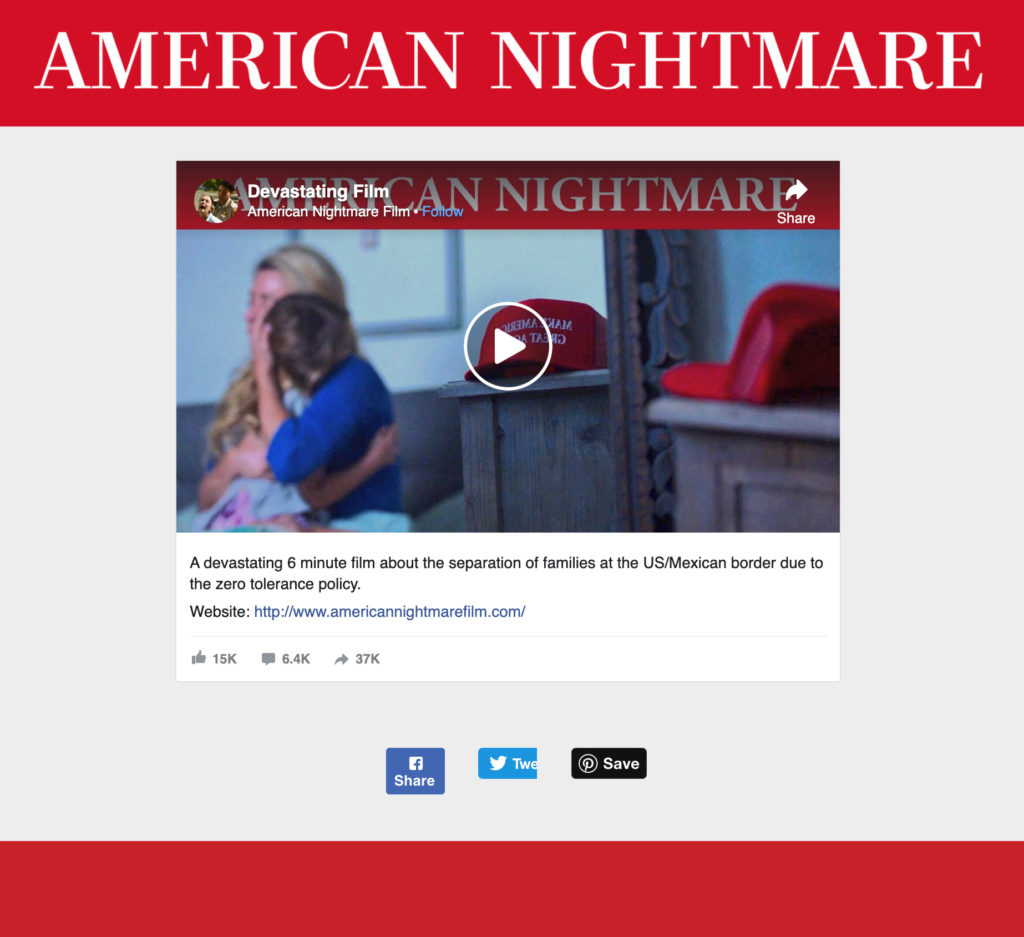Films and Multimedia Resources for Human Rights Community Dialogue
Films and other forms of media can be powerful tools to tell stories that provide educational context and spark much-needed dialogue. They can be a catalyst for leadership development and inspire individuals to go beyond the role of viewer and take action for social change.
See below for links to films and resources we are proud to share.
Over the last few years, many wonderful and thought-provoking media projects have been produced on a range of issues. They can tell the personal stories of immigrant and refugees migrating to the US and other countries. And they can inform us about the conditions and push factors that force people to move – from impacts of climate change/environmental degradation of homelands — to war, social exclusion, poverty, and violence.
NNIRR encourages viewers to consider a set of basic questions that will help communities look critically at the bigger context of the “migration story” and to consider the filmmaker’s motivations in telling the chosen narrative, and the perspective and ways in which they portray their characters.
NNIRR is interested in supporting and providing our members with direct access to films and creative multi-media projects that:
- Explicitly or implicitly confront the multiple layers of xenophobic and racist narratives about immigrants and refugees
- Promote a broad framework for human rights
- Draw links to interrelated socio-political conditions and push factors that drive migration
The films and filmmakers come from many different perspectives and convey equally diverse messages, some are more explicit while others are subtle, but all deserve critical analysis and discussion. We have provided a set of general questions to get conversations started and encourage you to share these films in all sorts of settings and “discussion” venues: in your living rooms with a small group of family and friends, at larger community screenings/events or in classrooms of all ages (after first carefully vetting content for younger viewers).
When film projects listed below come with their own educational discussion guide, we have provided a link. For others that do not have additional guides, we may have added our own specific questions to use alongside the general media literacy discussion questions. Should you come up with your own set of questions for any of the films or to enhance the general discussion guide we offer, please share them with us so we can add your insights to our collective resources.
⚠️ A NOTE OF DISCLOSURE:
While we have reviewed these films and have weighed their content against our general criteria, we offer them as resources to use at your own discretion. We strongly recommend you preview the entire content before screening any of the following projects to a wide audience or classroom, there may be themes and images that can trigger traumatic responses. We do not necessarily endorse all of the views or portrayals of issues and or characters, but feel their content and general messaging are worthwhile for facilitating important conversations about migrant and refugee rights and the intersections of social and environmental justice issues.
Themes To Observe In These Films:
- Push factors and conditions that force people to migrate — the “drivers” of migration
- Policies of exclusion, discrimination and enforcement
- Solidarity and welcoming communities
- Human rights
- Models of community organizing, resistance and resilience
- Intersections of social justice issues: gender, race, class, LGBTQI, environment, etc.
Film/Multimedia Literacy & General Discussion Guide Questions
(Downloadable pdf media literacy guide here.)
Please contact: nnirr@nnirr.org if…
- you have a film or media project you believe NNIRR should promote on this page or
- you have suggestions to add to the general or film-specific discussion question guides
- you have any other reason to reach out!
Note: The Zinn Education Project also posted a great set of films for students to watch during the Covid lockdown… check out their list here: Films with a Conscience
Films & Multimedia Project Links
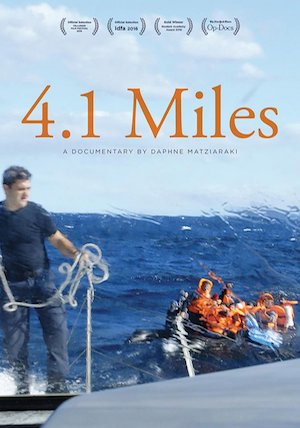
(2016) Documentary Short Film (25 min.)
This film shows the daily life of a coast guard captain on Lesbos as the Greek island’s residents struggle to rescue and care for thousands of refugees fleeing war in Syria. Warning! Much of the film consists of footage from boat rescues, including some disturbing images which should be taken into account when considering whether to show to broad audiences.
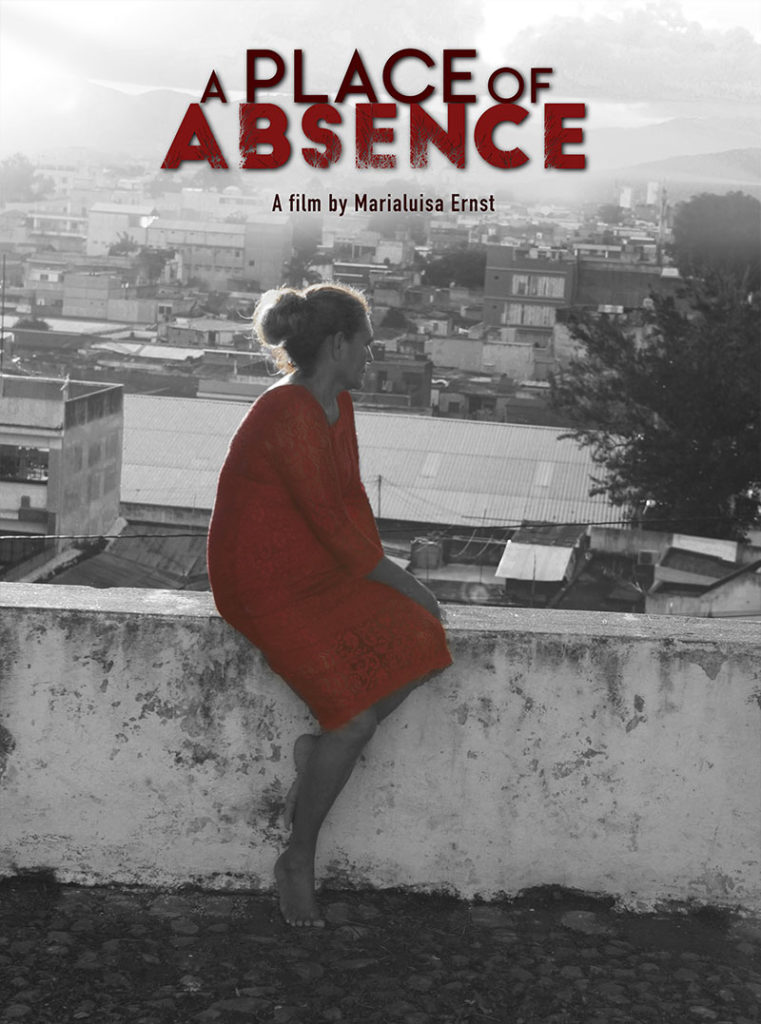
Documentary in production
A group of Central American women embark on an epic bus journey through Mexico, looking for the disappeared loved ones who went missing on their way to the US.
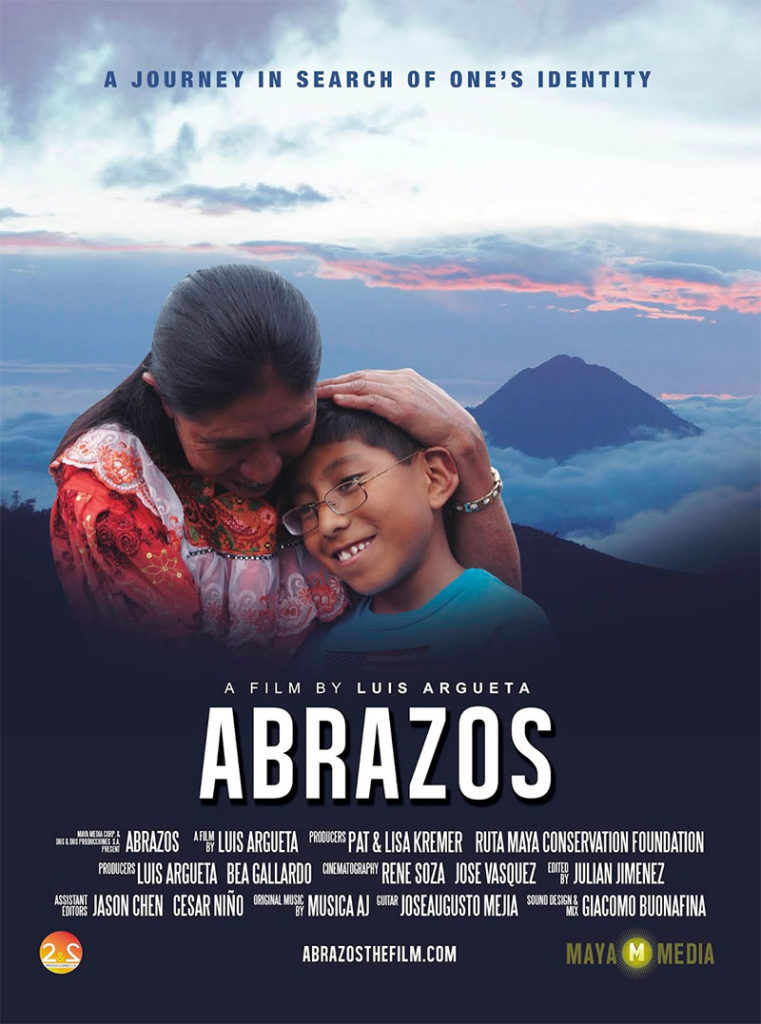
(2014) Documentary by Luis Argueta, Maya Media Corp (43 min.)
The inspirational journey of a group of children who travel from the US to Guatemala to meet their grandparents for the first time.
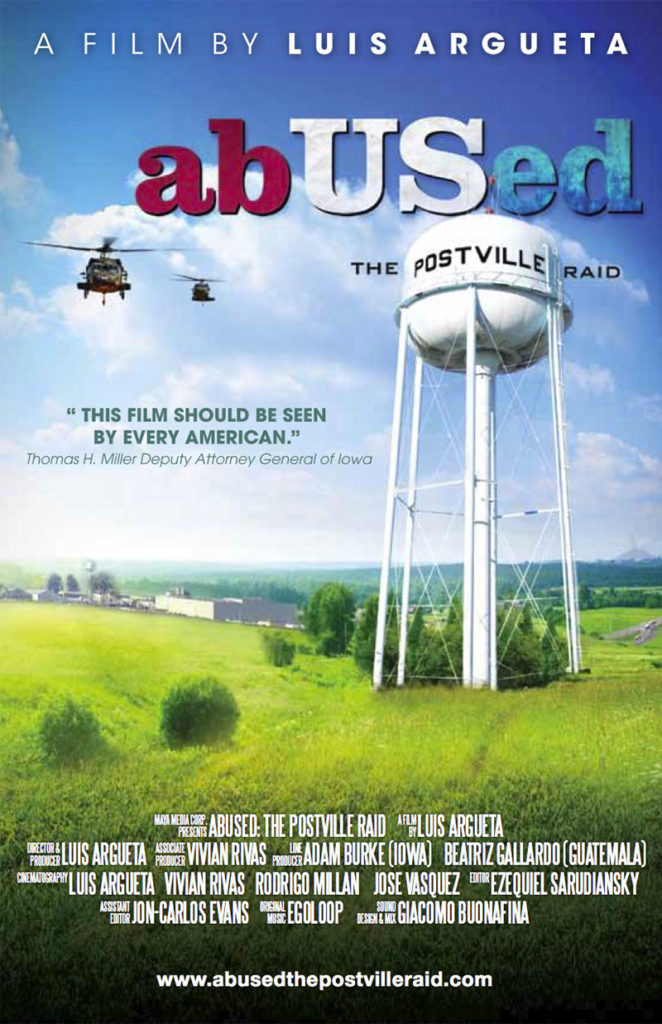
(2014) Documentary Feature Film by Luis Argueta, Maya Media Corp (2 hours, 48 minutes)
This documentary tells the story of the immigration raid and brutal arrest of 389 workers at the largest kosher slaughterhouse plant in the country by over 900 heavily armed ICE agents, and the impact on the community in its aftermath.
(2018) Short Humanitarian Film by Jesus Nebot
This film depicts an child and her mother’s experience during an encounter with police that escalates after a routine traffic stop.
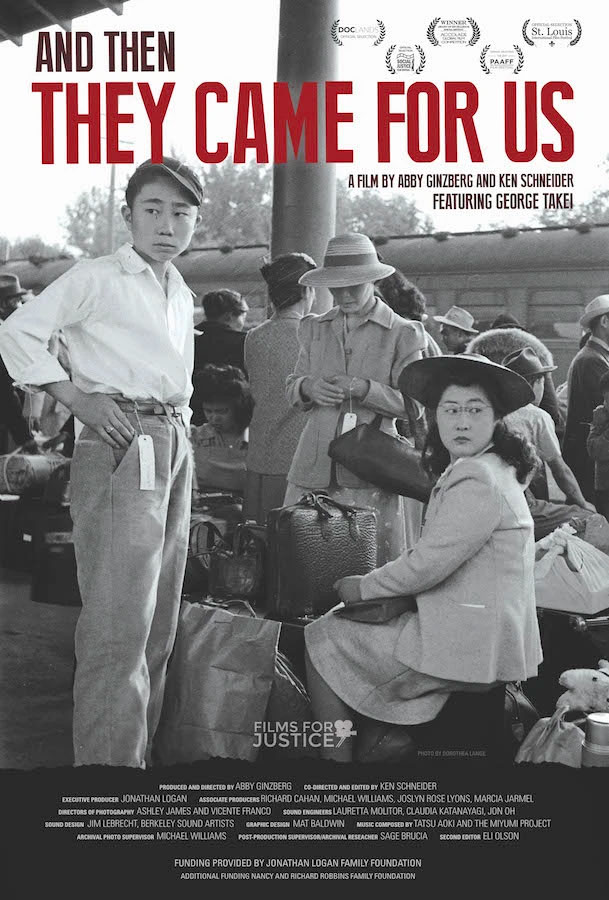
(2017) Documentary (50 min)
This film “educates audiences about the constitutional damage done in the face of national security,” by looking at past stories and recovered photo documentation taken of families during the forced incarceration of 120,000 Japanese Americans. The film compares the political period after the Executive Order by Roosevelt in the 1940’d (also upheld at that time by the Supreme Court) to the recent Muslim travel ban and other restrictive and discriminatory immigration policies. The filmmakers interview Japanese Americans speaking out against the ban and other measures that scapegoat immigrants.
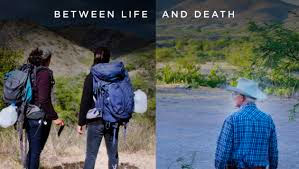
(2017) Mini-documentary (8.44 min)
This short profiles the growing humanitarian crisis of migrant deaths along the Southern border and presents two opposing views on the potential impact of Trump’s proposed border wall from residents who live at the U.S.-Mexico border in Arizona.
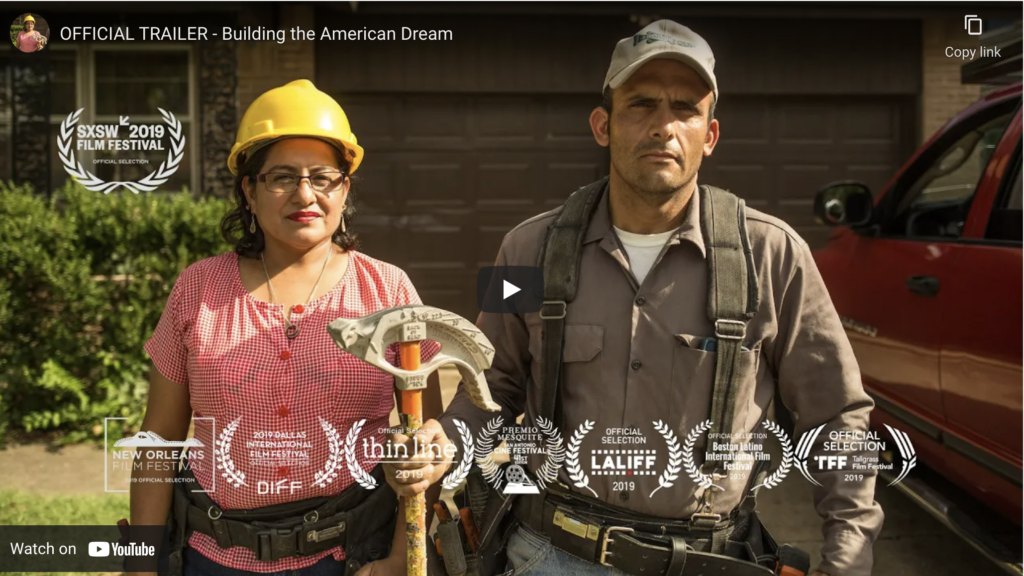
(2019) Feature-length Documentary (1 hour 55 min)
From the website: Across Texas, an unstoppable construction boom drives urban sprawl and luxury high-rises. Its dirty secret: abuse of immigrant labor. BUILDING THE AMERICAN DREAM captures a turning point as a movement forms to fight widespread construction industry injustices.
A través de Texas, un auge de la construcción imparable impulsa la expansión urbana y los rascacielos de lujo. Su sucio secreto: abusó de trabajo inmigrante. CONSTRUYENDO EL SUEÑO AMERICANO captura un punto de inflexión a medida que se forma un movimiento para combatir las injusticias generalizadas de la industria de la construcción.
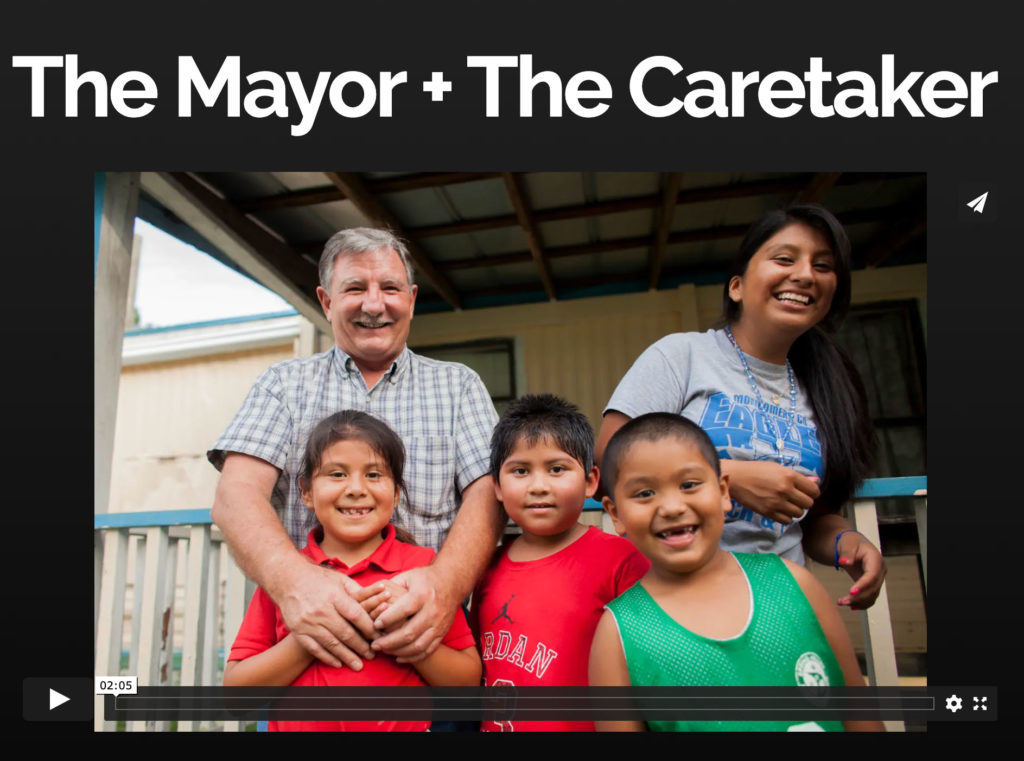
(2012 & 2013) Two mini-shorts (The Mayor – 10 min. | The Caretaker – 7 min.)
From the website: Two powerful short films that explore contemporary immigration issues in the U.S., The Caretaker and The Mayor are intimate portraits of relationships between recent immigrants, and those who came to the U.S. generations ago.
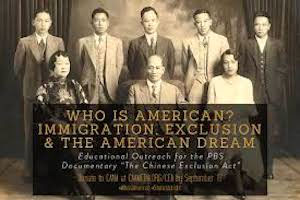
(2016) Documentary Feature Film (160 min.)
PBS & Center for Asian American Media (CAAM) co-produced this film that presents connections between the Chinese Exclusion Act and US immigration policy through history.
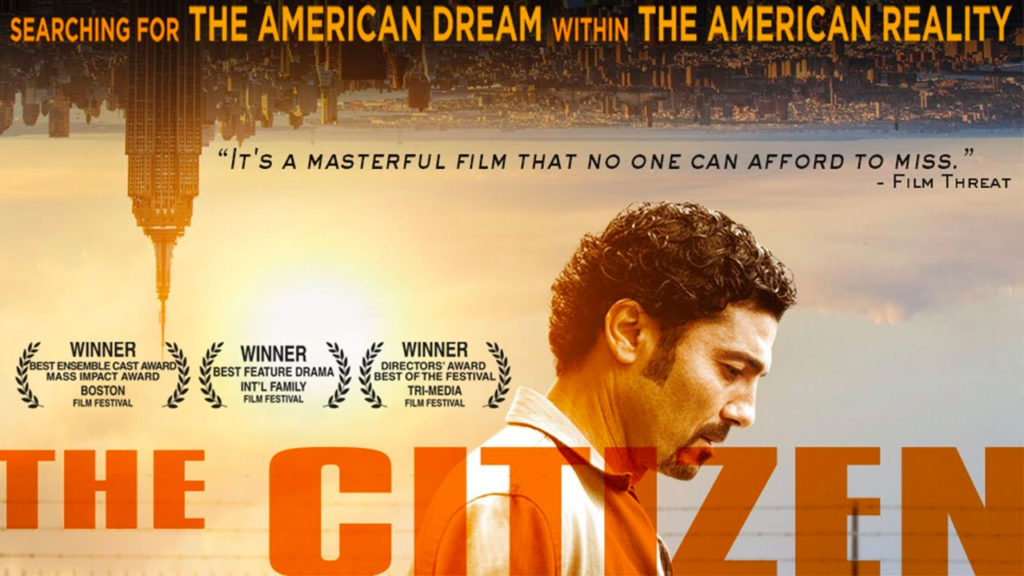
(2012) Feature film – Drama inspired by true events (99 min.)
Yearning to leave behind his life of misfortune in the Middle East, Ibrahim Jarrah wins the U.S Green Card Lottery for a chance to become an American citizen. Ibrahim lands in New York City the day before 9/11… and the events of the September terrorist attacks forever shape the struggles he faces on his journey to capture the American dream.
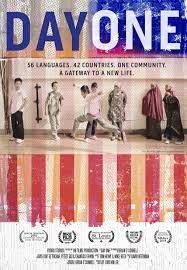
(2018) Documentary (82 min.)
From the website: DAY ONE follows a group of teenage refugees from war-torn countries who are enrolled at a unique public school for refugees and immigrants-only in St. Louis, MO, where they are guided through an inspirational program of education, healing and trauma intervention by devoted educators, some of whom have chosen to relocate to the inner city to support their students. Over the course of a year, we watch the kids progress through layers of grief and loss as they attend school, forge new friendships, and prepare to be mainstreamed into local public high schools. Their triumphs and tribulations all unfold with St. Louis as the backdrop: a rust-belt city that has taken the bold step of welcoming immigrants as a solution for their growing socio-economic problems.
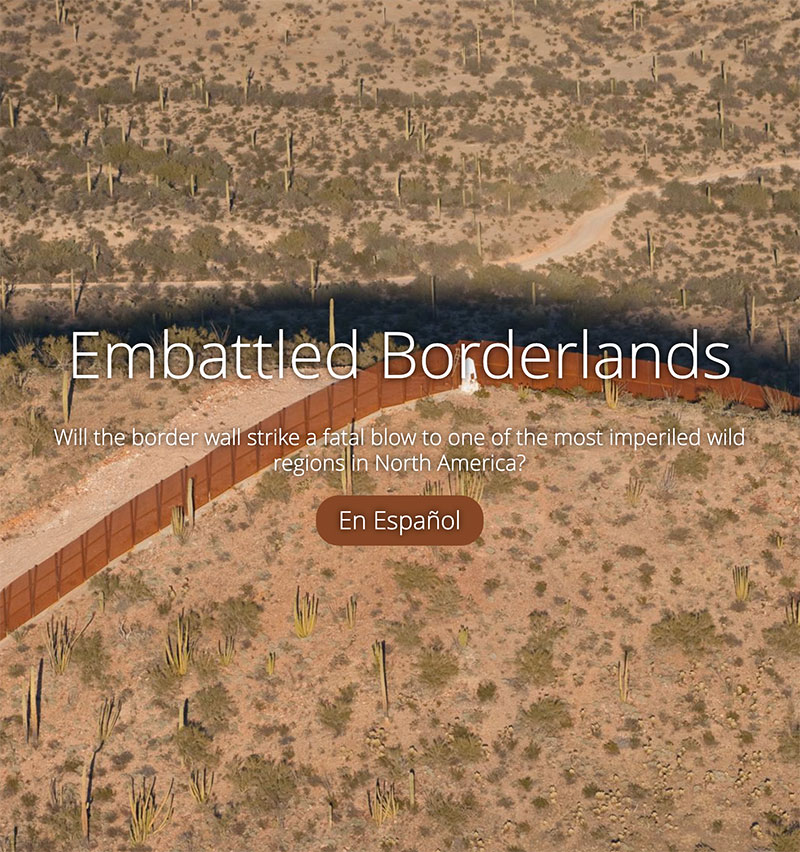
(2016) Story Map interactive multi-media
Traversing wildlife refuges, deserts, and border metropolises, Embattled Borderlands provides striking imagery and observations on the border infrastructure and militarization policies that threaten borderland inhabitants of all species.
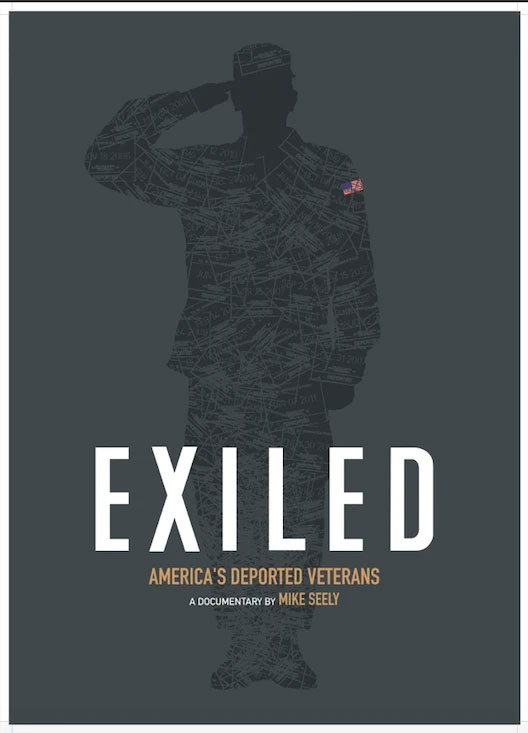
(2017) Documentary Short (30 min.)
“Two military veterans, both green card immigrants willing to die for America, get deported.”
This documentary profiles the complex stories of two vets who were deported as a result of current immigration laws. Both live in Tijuana and are fighting (and organizing) for their right to return home to their families.
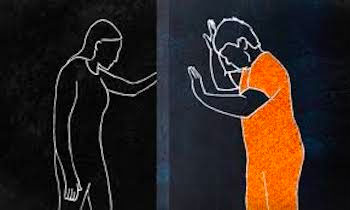
Exposed: The Injustice of Immigration Detention
(2017) Documentary Mini Short (5 min.)
This short video outlines the systemic injustice of immigrant detention, including restricted visitation, access to legal services, solitary confinement, and the corporations profiting from it.
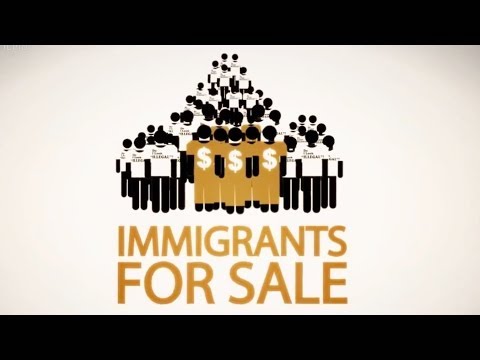
Immigrants for Sale
(2015) Documentary Short (33.09 min.)
The detention of migrants has become a multi-billion dollar industry in which immigrants are sold to the highest bidder and traded like mere products. The Corrections Corporation of America, The Geo Group, and the Management and Training Corporation run over 200 facilities all over the nation.
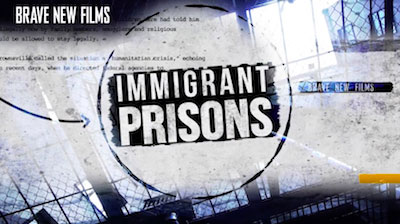
Immigrant Prisons
(2017) Documentary (14:36 min.)
This film explores conditions inside immigration prisons run by Immigration & Customs Enforcement, ICE, exposing substandard medical care, widespread physical and sexual abuse, virtual slave labor working conditions and more.
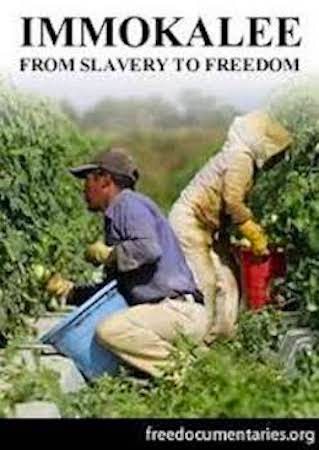
Immokalee: from slavery to freedom
(2010) Documentary short (24.25 min.)
This short tells the work of the Coalition of Immokalee Workers in South Florida, who organize to build solidarity among the workers and fight back against the abuses and extreme exploitation of farmworkers in the fields.
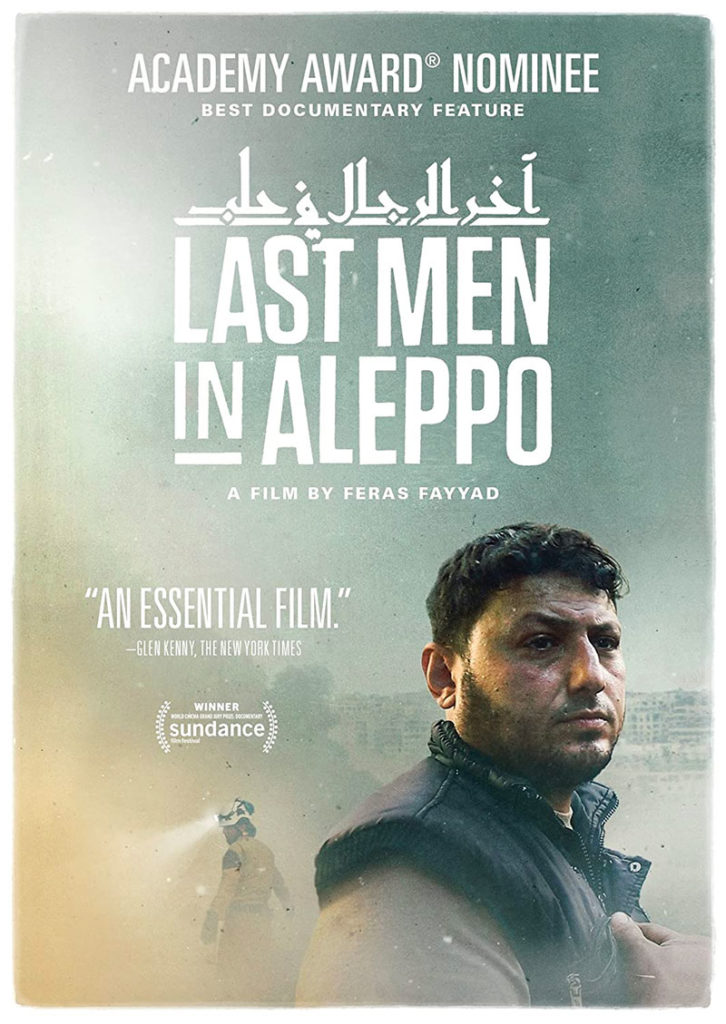
Last Men in Aleppo
(2017) Documentary Feature Film (90 min.)
The film follows a faction of the White Helmets, a civil defense group in Syria, as they attempt to rescue civilians from the continued destruction and violence occurring in Syria by the Assad regime. The film won the World Documentary Grand Jury Prize at 2017 Sundance Film Festival and was nominated for Best Documentary Feature at the 90th Academy Awards.*Please note! Due to the topics being touched on in this film, there are especially graphic images of violence and death that must be taken into account when showing to a broad audience.
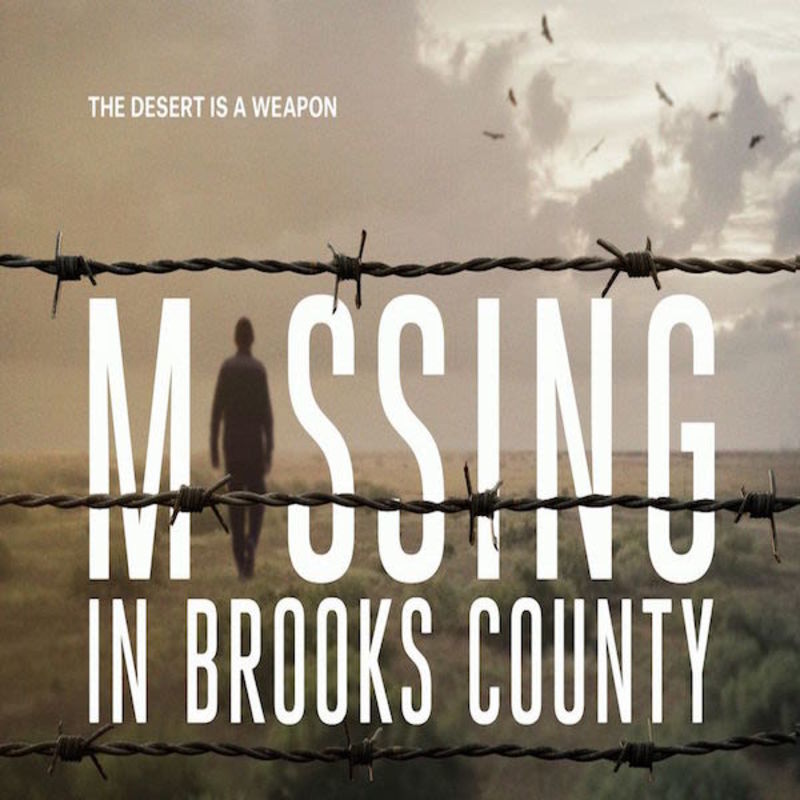
(2020) Documentary Feature Film (1 hour 22 min.)
Anyone looking for a family member last heard from in Brooks County will eventually find their way to Eddie Canales, who runs the South Texas Human Rights Center. Eddie helps the families look for their loved ones by engaging with Border Patrol agent Alex Jara and mounting an extensive search of the private ranches where many bodies are found. Together, they come upon clues to the mystery of what happened to their loved ones and confront the agonizing reality of life and death in Brooks County.
Missing in Brooks County follows the stories of two families searching for their loved ones who went missing in the fields of Brooks County, Texas. A gripping drama, it is also a deeply humane portrait of the human rights workers, activists, and law enforcement agents who confront the life-and-death consequences of a broken immigration system.
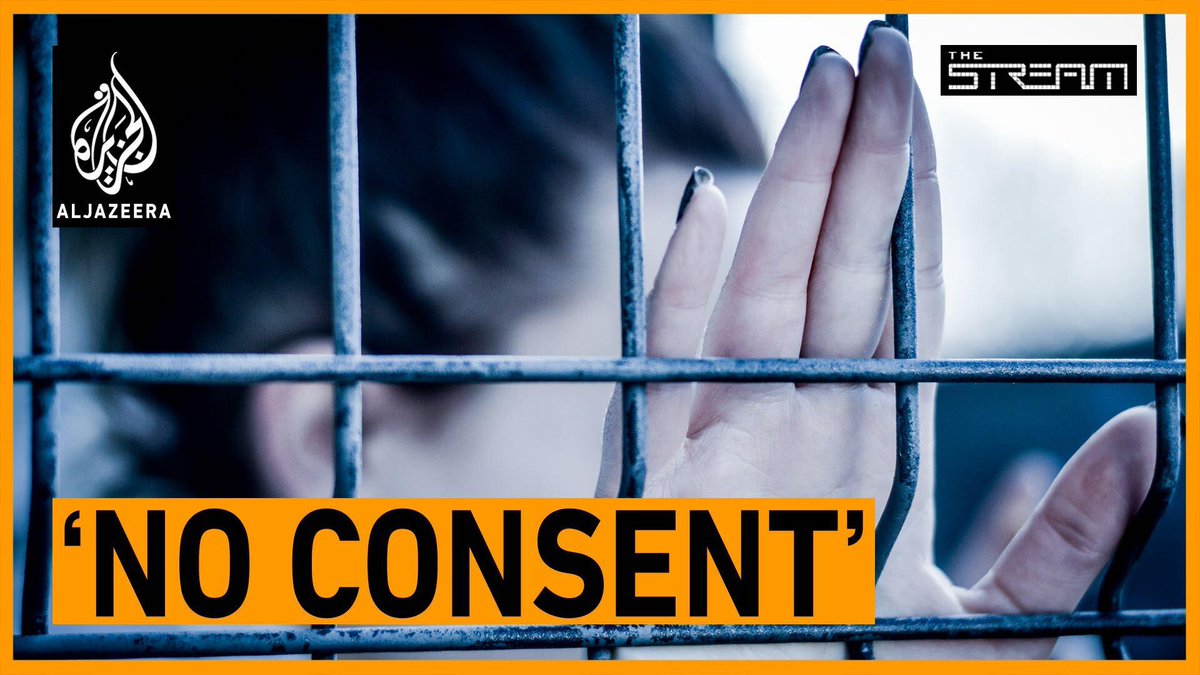
(2021) Documentary (25.30 min) Produced by Aljazeera “Fault LInes”
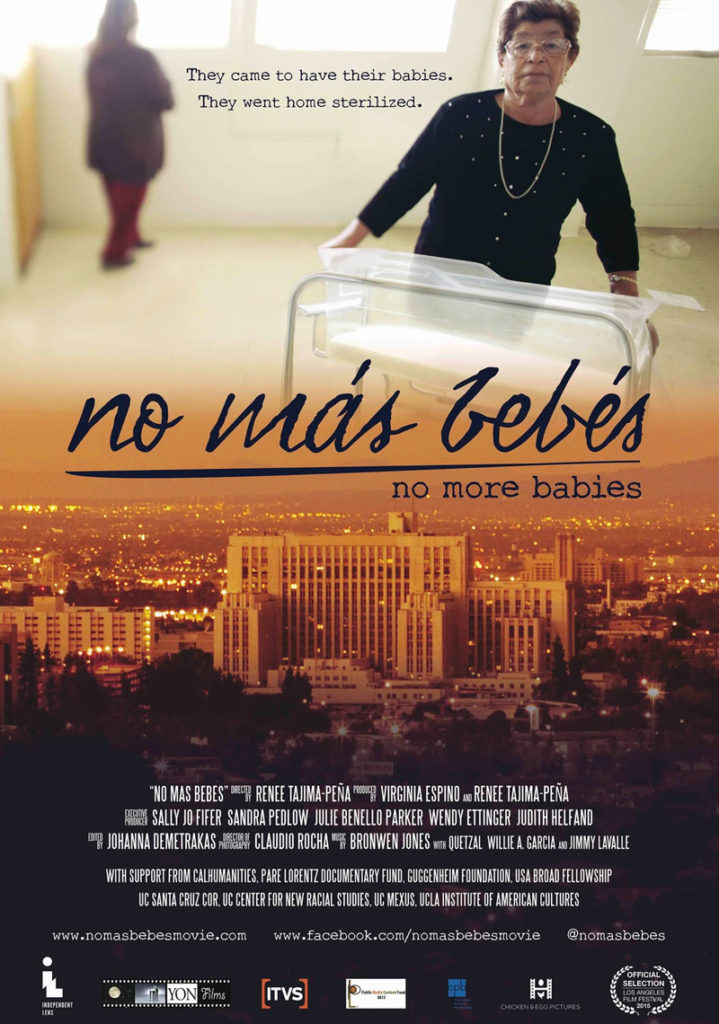
no más bebés | no more babies
(2015) Documentary (53 & 79 min versions)
“Mexican-American women fighting for justice after being sterilized against their will.“
This film chronicles the legal fight of Mexican immigrant mothers who were forcibly and often unknowingly sterilized in the Los Angeles County Hospital in the 1970s, leading to a civil rights lawsuit asserting that Roe v. Wade gives women the right not only to have an abortion but also to choose to bear a child. Immigrant and poor women’s reproductive rights were under attack against a system that sought to take away their choice under the guise of population control and immigrant fear mongering. A powerful account of this period of history, this film allows us to reflect on issues that persist today in seeking reproductive justice and its intersection with gender and immigrant rights.
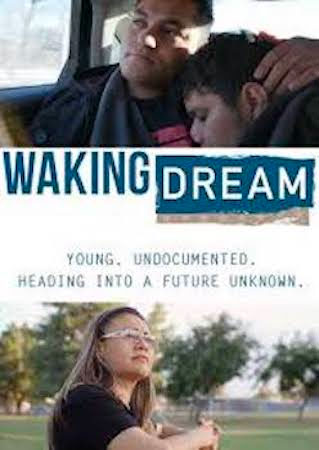
Sanctuary
(2017) Mini-shorts (4 short films)
This collection of short films seeks to explain the history and reasoning behind the sanctuary movement through personal examples of individual immigrants and church communities.
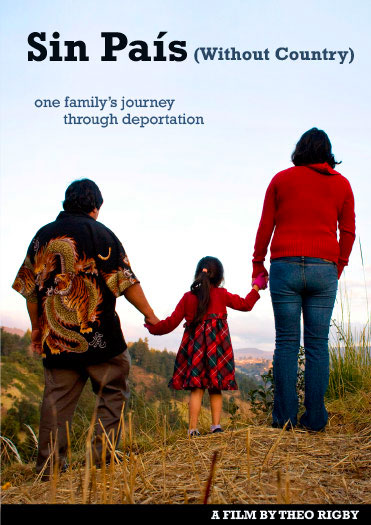
Sin País
(2010) Documentary short (20 min.)
The Mejia-Perez family have built a life in California but are suddenly separated from each other after the undocumented parents are deported. The short documentary follows each family member as the struggle to love and support each other across borders.
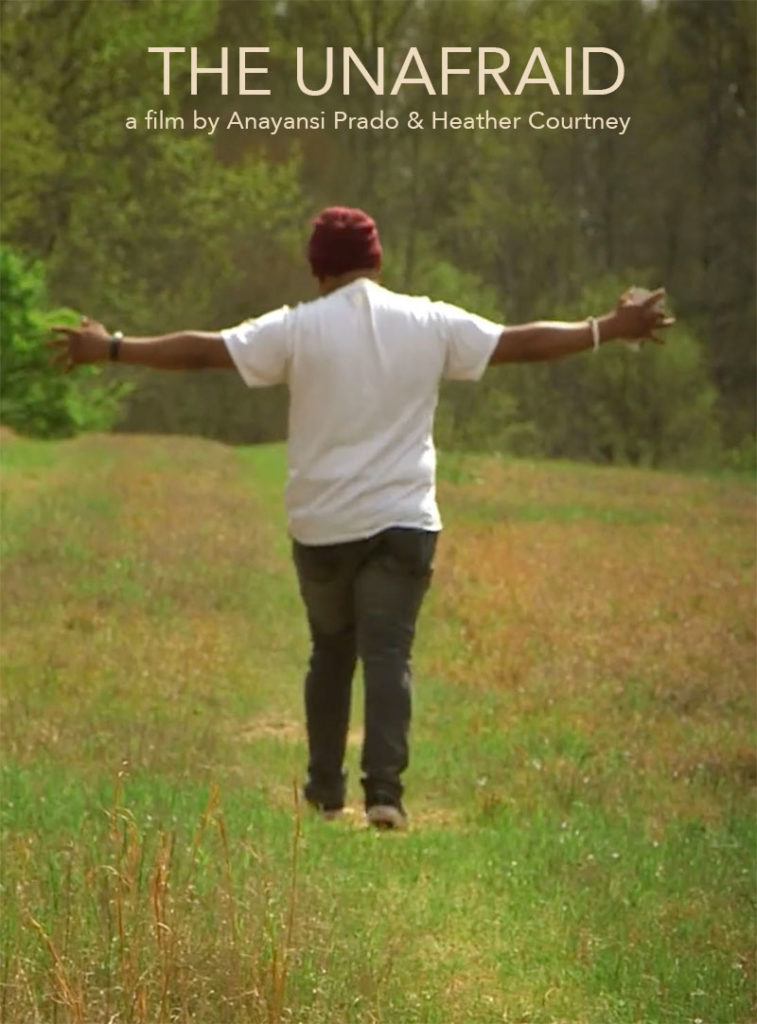
The Unafraid
(2018) Feature length documentary (87 minutes)
“They are undocumented. They are unapologetic. They are THE UNAFRAID.” The Unafraid trailer can be viewed here
Winner of the 2018 Full Frame Film Festival Kathleen Bryan Edwards Award for Human Rights, this documentary is a powerful personal portrait of three DACA students and their families from Georgia. The film follows these students and their activism over several years advocating for their rights and those of their broader community, including the fight for in-state tuition for undocumented students in the public college system.
The full film is available through Good Docs, but you can view two powerful trailers here, including the 15-min sneak preview called “Tacos Open.”
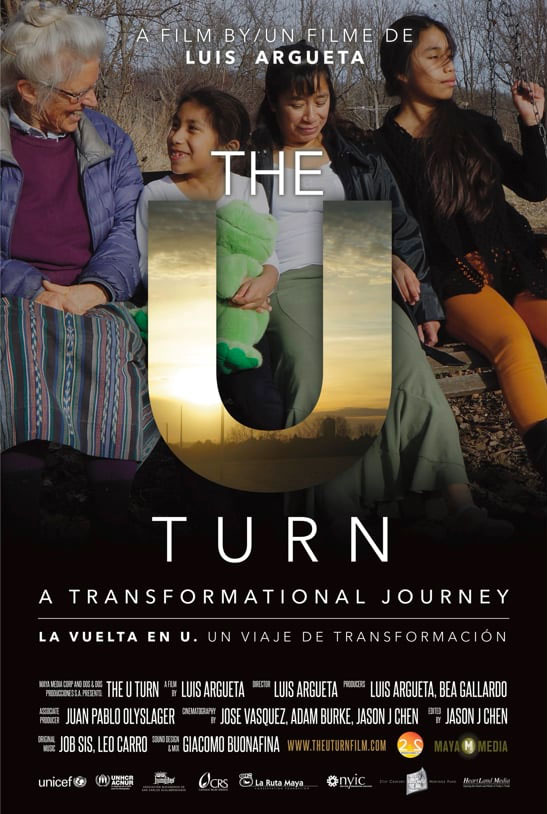
The U-Turn
(2016) Documentary (56 minutes)
The last in a trilogy of films by Luis Argueta, this film is “a transformational journey.” Following members of the Guatemalan community in Postville, Iowa, following the 208 raids of the Agriprocessor plant arresting 389 workers, after child-labor violations investigations were put on hold to allow ICE to raid the facility. This film chronicles the lives of those subjected to harassment, abuse and child labor violations, and the 8-year legal battle pro-bono lawyers took on to win U-Visas for deported workers who were victims of these crimes, including sexual harassment and abuse, violation of child labor laws, and other human rights and workplace abuses. Others who could not qualify for U-Visas were granted “Voluntary Departure” and allowed to leave the US without a record of having entered and stayed without papers. A total of 92 cases were involved.
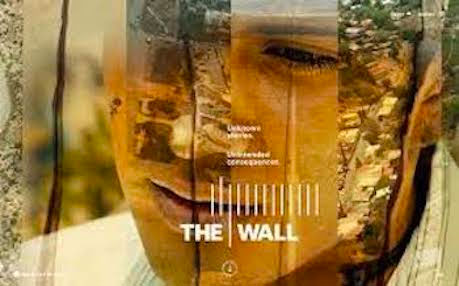
(2017) Multimedia journalistic piece/story map of USA Today Network
This is a multimedia collaborative journalistic piece that can be explored in 6 interactive ways: clickable map, videos, virtual “flight” over 2000 miles of border area, stories, podcast, virtual reality.
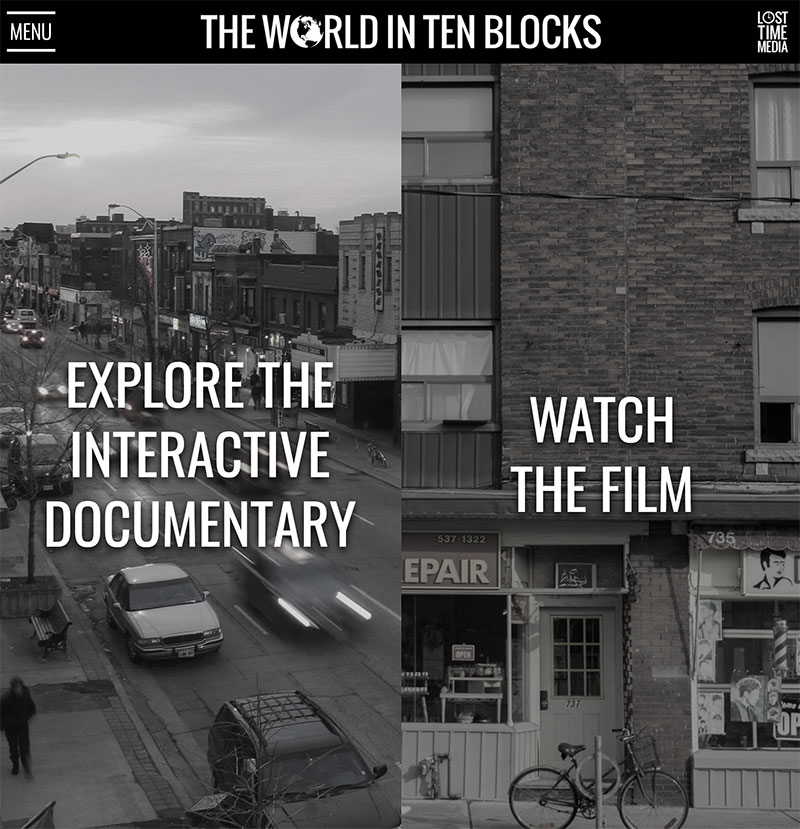
(2010) Documentary short (24.25 min.)
This short tells the work of the Coalition of Immokalee Workers in South Florida, who organize to build solidarity among the workers and fight back against the abuses and extreme exploitation of farmworkers in the fields.
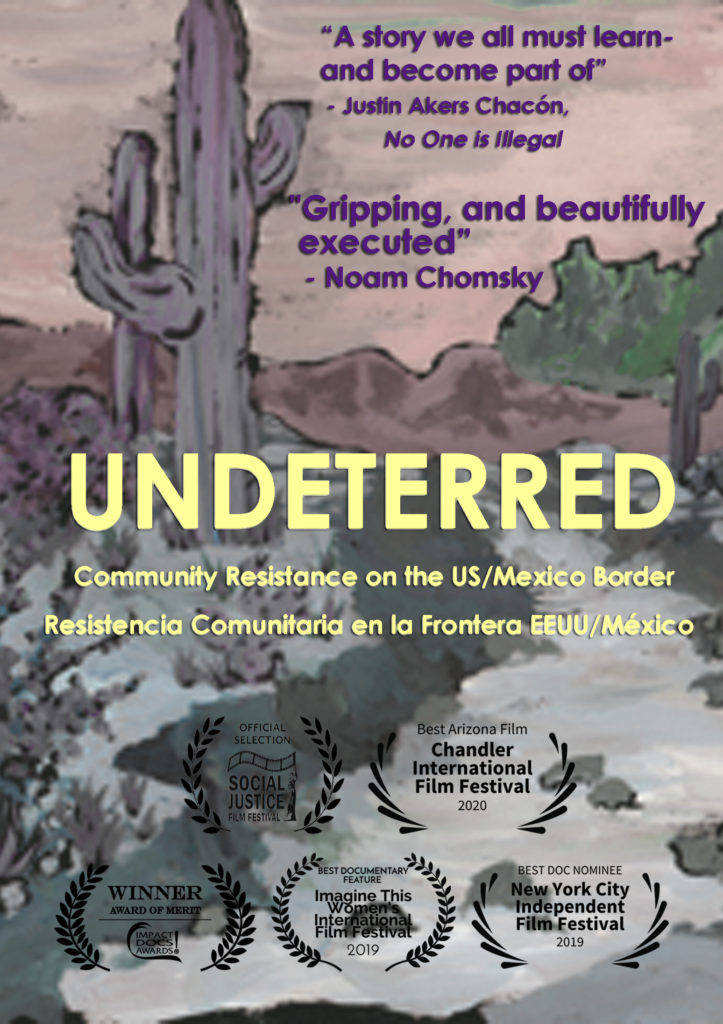
(2019) Documentary feature film (1 hour 16 min.)
Undeterred is a documentary about community resistance in the rural border town of Arivaca, Arizona. Since NAFTA, 9/11 and the Obama and Trump administrations border residents have been on the front-lines of the humanitarian crisis caused by increased border enforcement build up. Undeterred is an intimate and unique portrait of how residents in a small rural community, caught in the cross-hairs of global geo-political forces, have mobilized to demand our rights and to provide aid to injured, oft times dying people funneled across a wilderness desert.
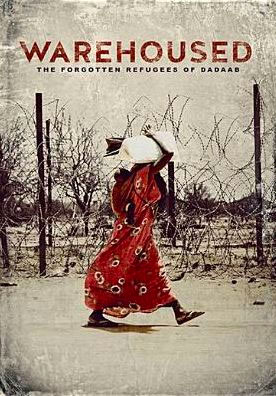
(2017) Documentary Feature Film (110 minutes)
Set in the world’s largest refugee camp, Daddab, Warehoused describes the difficulties many refugees face in trying to seek resettlement, while being stuck in a state of limbo, often for most of their lives.

